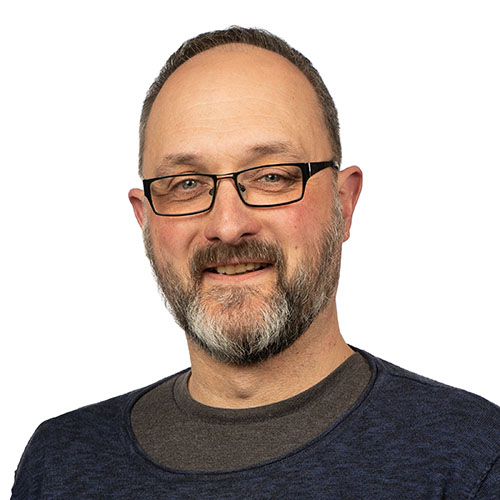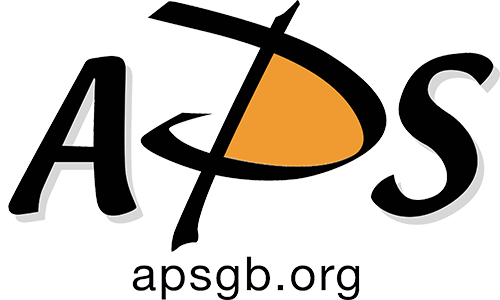Pharmaceutical Sciences with Industrial Practice, MSc
Develop the enhanced skills needed to succeed in the pharmaceutical research, development and manufacturing industries with this MSc Pharmaceutical Sciences with Industrial Practice.
This course is designed for graduates who are interested in careers in the pharmaceutical industries. The first year is spent studying the MSc in Pharmaceutical Sciences. You'll improve your problem-based learning through case studies, develop entrepreneurial skills, and discover the values of ethical enterprise. A second-year internship gives you the opportunity to put this knowledge into practice and gain experience in industrial laboratories, contributing to your professional development as a scientist.
You'll emerge with advanced knowledge and extensive laboratory skills, covering disciplines including drug discovery and medical chemistry as well as product development and manufacturing. Graduates are in high demand due to the combination of in-depth knowledge and skills and experience.
This programme has been designed for the International Market.
Interested in a different year?
Select your preferred
to view up to date information.
School
Location
Duration
2 years sandwich
Start month
September; January
Fees information
For fee information related to this course, please see fees section below
What you should know about this course
What you will study
Year 1
Students are required to study the following compulsory modules.
- Drug Discovery and Medicinal Chemistry (30 credits)
- Colloids and Structured Materials (30 credits)
- Academic English for Postgraduates (Science)
- Analytical Methods and QA/QC Principles (30 credits)
- Modern Pharmaceutical Processing & Active Ingredient Delivery (30 credits)
- Pharmaceutical and Formulation Science Research Project (60 credits)
Year 2
Students are required to study the following compulsory modules.
- Industrial Practice (60 credits)
- Pharmaceutical and Formulation Science Research Project (continued)

Ana Castilla
Senior Lecturer in Pharmaceutical Sciences

Dr Bruce Alexander
Principal Lecturer, Physical Chemistry
About the course team
Our programme team and other contributors to the course are globally recognised specialists in their fields. Colleagues from industry deliver guest lectures each year as well as industry-relevant teaching sessions and seminars.
Come and meet us
We are offering virtual events so that you can still experience how Greenwich could be the right university for you.
Next Open Days
Got a question?
To find out more about our Open Days and Campus Tours or if you need any assistance, please email opendays@gre.ac.uk.
Entry requirements
Applicants should have:
A BSc honours degree normally at 2.2 or above or equivalent level qualification in chemistry, biochemistry, pharmacy or pharmaceutical science.
OR substantial workplace experience.
For more information, use our contact form or call us on 020 8331 9000.
You can also read our admissions policy.
Further information about entry
Applicants from other backgrounds are considered but applicants should e-mail the Programme Leader via fes-courseinfo@gre.ac.uk.
Available to overseas students?
Yes
Can I use Prior Learning?
Find out more on our Recognition of Prior Learning pages.
How you will learn
Teaching
This course is taught by lectures, seminars, workshops and lab-based exercises, with the use of practical case studies. You'll gain teamwork experience to simulate an industrial setting as well as the critical thinking and problem-solving abilities which are important for modern pharmaceutical processes.
Class sizes
For specialist modules, our classes are typically limited to 40 students in lab sessions and larger numbers in common lectures. Specialist labs allow hands-on experience across a range of techniques and all modules have a practical element.
Independent learning
Our courses are designed to give you the space for exploratory and independent study. You'll work towards individual and group assignments and undertake the preparation/follow-up work associated with lectures, seminars, integrative assignments and laboratory classes.
We encourage students to take advantage of a range of related extra-curricular opportunities available within the university and elsewhere.
Overall workload
If you are studying full-time, you should expect the workload to be similar to a full-time job. For part-time students, this will reduce in proportion with the number of courses you are studying.
For the industrial practice module, you are expected to study for around 600 hours during the placement - around 13 hours a week in addition to the time spent at work. That is generally the minimum amount of time you will need to spend reading, note taking and writing to cover the necessary material and produce the assessment. If English is not your first language, it may take longer to cover the same amount of material.
Assessment
Students will be assessed through a variety of methods, such as:
- Classroom presentations, discussions and case-studies
- Critical reviews, looking at new areas of research
- Examinations.
Students will also be expected to complete a reflective assessment about the professional development achieved through the internship.
Feedback summary
University policy is to give feedback on assignments within 15 working days of the coursework submission date. Examination results will be available within 28 days.
Dates and timetables
Each academic year runs from September to June.
Full teaching timetables are not usually available until term has started. For any queries, please call 020 8331 9000.
Fees and funding
University is a great investment in your future. English-domiciled graduate annual salaries were £10,500 more than non-graduates in 2023 - and the UK Government projects that 88% of new jobs by 2035 will be at graduate level.
(Source: DfE Graduate labour market statistics: 2023/DfE Labour market and skills projections: 2020 to 2035).
| Cohort | Full time | Part time | Distance learning |
|---|---|---|---|
| Home | £16,550 | N/A | N/A |
| International | £21,000 | N/A | N/A |
Accommodation costs
Whether you choose to live in halls of residence or rent privately, we can help you find what you're looking for. University accommodation is available from £126.35 per person per week (bills included), depending on your location and preferences. If you require more space or facilities, these options are available at a slightly higher cost.
Scholarships and bursaries
We offer a wide range of financial help including scholarships and bursaries.
The Greenwich Bursary
This bursary is worth £700 for new undergraduate students with a low household income, entering Year 0 or 1 who meet the eligibility criteria.
EU Bursary
Following the UK's departure from the European Union, we are supporting new EU students by offering a substantial fee-reduction for studying.
Financial support
We want your time at university to be enjoyable, rewarding, and free of unnecessary stress, so planning your finances before you come to university can help to reduce financial concerns. We can offer advice on living costs and budgeting, as well as on awards, allowances and loans.
Careers and placements
Will I have a work placement?
The industrial year is an opportunity to put into practice the knowledge and experienced from your first year. The placement provides a valuable opportunity to work in state-of-the-art industrial laboratories. Combine advanced learning of leading techniques and processes with how they are applied in industry, all contributing to your professional development as a scientist.
How long is my placement?
An industrial practice placement should typically last 11 months, with a maximum of 48 weeks, and a minimum of 35 weeks (only if required by the student placement search process).
Mentors
A workplace mentor supports you throughout your placement year. Your mentor helps you to set objectives and goals and ensures you receive appropriate training.
You are also allocated an academic mentor, who monitors your study progress and arranges a visit/call with you and your workplace mentor during the placement year to ensure it is running smoothly.
What sort of careers do graduates pursue?
Graduates should be able to find employment in a range of industrial settings, from QA/QC, drug discovery, research and development, pharmaceutical pre-formulations, formulations and production regulatory affairs.
Do you provide employability services?
As well as support from the Faculty of Engineering and Science Placements Team, the University partners with an organisation that specialises in guiding students to secure an industrial practice placement. However, it is ultimately the student’s responsibility to secure an appropriate placement. This could be with a local or international employer in a relevant industrial sector.
If a placement is not secured, it will still be possible to graduate with an MSc in Pharmaceutical Sciences without Industrial Practice.
Accommodation
Medway campus in Kent
Our Medway halls of residence are all located on-campus, with facilities include an on-site café, launderette and bar. And the halls are located within minutes of the historic Chatham dockyard and Chatham and Gillingham town centres.
With student-run social events, modern ensuite rooms and communal shared spaces, you’ll find that living in halls of residence will be a highlight of your University of Greenwich experience.
Rooms start at £172.06/wk and include Wi-Fi, utility bills and 24-hour residential support. Our Medway accommodation boasts 350 rooms with 24/7 security, and resident car parking permits are available.
Support and advice
Academic skills and study support
Every student is allocated a named personal tutor from the teaching team, who will also act as a mentor as appropriate. The core teaching team has a well-established tutorial process at postgraduate level. The course leader will introduce each student to his/her personal tutor and full contact details and office hour information will be provided. Workplace mentors are also allocated in the second year.
Support from the department
We help new students over the first few weeks with our faculty and department induction. We'll also help you discover the academic and social landscape at Medway Campus.
Not quite what you were looking for?
We've got plenty of other courses for you to choose from. Browse our postgraduate courses or check our related courses below.....
Pharmaceutical science at the University of Greenwich
Our courses explore the essentials of pharmaceutical science, formulation science, pharmacology, biology, biochemistry, chemistry and drug discovery and delivery. Students will gain practical experience through labs and final year research projects.
Visit our pharmaceutical science degrees page.
Pharmaceutical science degrees
Science at the University of Greenwich
Whatever subject you’re into, from human health to climate change, our supportive learning environment will prepare you for your future career. Many of our courses are accredited by professional bodies.
Visit our science degrees page.
Discover the world through science
Interested in studying a science subject? From pharmacy to forensics, we have so much to offer. Catch a glimpse of the opportunities available to you.
Mode of study
Select from the dropdown below.
| Course level | |
| UCAS code | |
| Duration | |
| Location |










